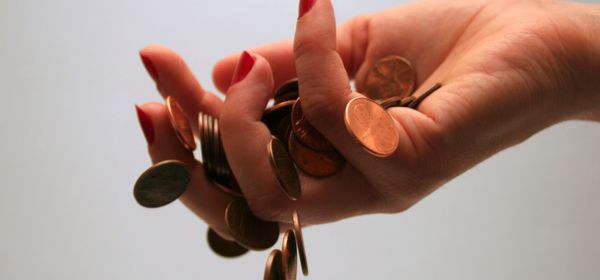Every week, my front-yard flower beds are bombarded with rolled-up newspapers I never read. About a year ago, I decided to pay for a subscription, believing it would keep me at the forefront of news events. The truth is, I don’t rip the plastic wrapping off these newsprint missiles very often.
I’m wasting $89 a month. I can read all of this newspaper’s content online, and I mostly do. My decision to have the actual newspaper delivered every morning was taken during a nostalgic lapse that has become a waste of money.
I must cancel this subscription because it is money slipping through my fingers that I cannot afford.
Here are other ways to maximise the power of your dollar.
Dockets
Each time you make a purchase at a supermarket or any other of the many retailers that print coupons on the back of their receipts, you are being offered freebies or at least discounts on future purchases.
Don’t refuse receipts. Grab them with both hands and check out the money-saving offers on the back. There will be something for everyone.
Promotional codes and coupons
Many retailers and service providers publish codes that you can use to get a discount when you buy online. If you do not look up these codes before going shopping, you are letting go of opportunities to keep money in your wallet or purse. You are online already, so just tap a couple of keys to take you to the coupon page before you click ‘buy now’. The Thrifty Issue has a comprehensive list of websites listing coupons and promotional codes.
Shopping bags
This time next year, the major supermarkets aim to axe free plastic shopping bags. Grocers such as Aldi and retailers such as Officeworks currently charge if you want a shopping bag to carry away your purchases. Soon, many more retailers will begin charging shoppers for bags.
It may seem like 25 cents per shopping bag is a convenience worth paying for, but if you add up those 25 cents up over a year it could be costing you enough money to pay for some of the basics you can’t afford to skimp on. Take your own bags when you go shopping and before long you will find the savings add up.
Expired food
Sometimes we forget to check the contents of our refrigerators, pantries and cleaning cupboards before we go to the supermarket. We return home to put our purchases away only to realise we already had the item we just bought. Before going shopping for a packet of flour or other items with long use-by dates, check your pantry and fridge in case you already have the product.
Failing to do a stocktake of what is in your cupboards or fridge on a weekly basis puts you at risk of allowing previous purchases to go past their use-by dates. This is wasteful and is costing you money you don’t need to spend.
Gift cards and vouchers
If you have been lucky enough to score a gift card or voucher, make sure you stick it on your fridge or some other place where you will be constantly reminded that you have a purchase to redeem.
Too often we forget where we put these ‘gifts’ and when we finally come across them, more often than not, they’ve expired. Avoid this by sticking them somewhere prominent that will prompt you to redeem them in a timely manner, or carry them around in your purse or wallet so they are at hand when you need them. Not redeeming them in time wastes other people’s money and is a sign that you don’t respect what they have spent on you.
Direct debits
Set up direct debits to pay your bills on time. Too many utilities charge late fees that can add up to more than $100 a year if you are late with a payment. Imagine what you could enjoy with an extra $100 or more a year by setting and forgetting automatic bill payments to avoid late charges.
Insurance premiums
Keep on top of all of your insurance policies. If you are past child-bearing age, make sure your health insurance is not factoring in obstetrics, because that benefit is probably pumping up the premium you pay.
Check out your car insurance to ensure you are not paying a premium to have younger family members covered if they have already flown the coop.
What does your home and content insurance look like? If you live in a scaled down household, chances are you no longer need to pay extra for tech equipment your kids took with them when they moved out.
Perhaps you have sold your caravan or other valuable possession, which means you no longer have to pay the loading on the original insurance premium you bought when you had more valuables around than you have now.
Shop around on comparison websites for a better deal to suit your current situation and save potentially hundreds of dollars on home and content insurance.
What bad habits have you had that allowed money to slip through your fingers? Do you have any other tips to help you stash the cash?
Related articles:
Save on your car costs
How to save $2500 a year
300 ways to save money

